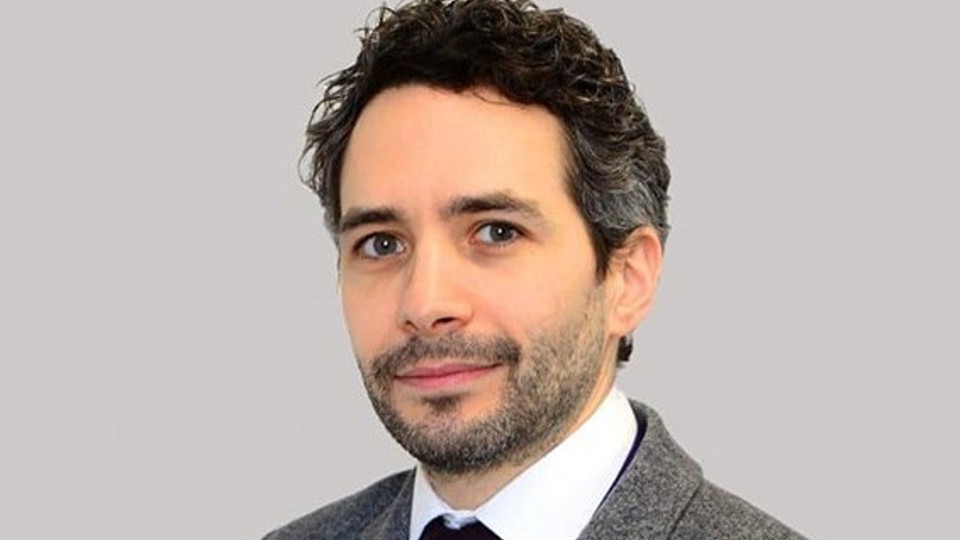Building on strong foundations – the year ahead at CEC – Oli de Botton
25 Oct 2022

Our CEO Oli de Botton shares some reflections about progress in careers education and the areas for focus this coming year.
Building on strong foundations – the year ahead at CEC – Oli de Botton
As we come to the end of the first half-term of the new academic year, I wanted to share some reflections about progress in careers education and the areas for focus this coming year. Foundations to build on but of course more to do.
The Gatsby consensus
In education consensus is hard won. Deeply held views are passionately debated, often without end. However, in careers there is consensus around the Gatsby Benchmarks, which have been voluntarily adopted - almost universally - in recent years.
This is important for three reasons.
Firstly, careers is a policy area which has changed significantly over the past 20 years. The fact we’re all pulling in the same direction is progress.
Secondly, the benchmarks have an ambitious vision at the centre, challenging us to integrate careers into every part of school life. This means young people having multiple and meaningful engagements with employers (in school and out of school), a curriculum linked to the world of work and individual and specialist support when needed. This vision hasn’t been realised for everyone, everywhere, but we’re on the right path.
Thirdly, we now have large amounts of data from the vast majority of schools and colleges about progress against the benchmarks. And we’re seeing their longer-term impact. The more benchmarks a school meets, the more likely young people are to be in sustained destinations after Year 11.
Careers Leaders, Leading
Careers Leaders are a growing force in schools and colleges. They’re better trained and more connected than before, leading more sophisticated careers programmes. Progress to date and in the future will rely on growing the status, power and time Careers Leaders have.
So how can we build on these foundations during the coming year?
Start early and amplify technical and vocational education
New legislation means Year 7 students will be included in careers education. We know this was common practice before, but the change signals an intention to make sure all young people are included. This matters. The earlier we start the careers conversations, the earlier we can challenge any stereotypes that hold back young people.
From January the Provider Access Legislation (PAL) will enshrine the number of encounters young people need to have with apprenticeship and technical education providers.
This is a great opportunity to amplify technical and vocational education for young people. I am optimistic we’ll see the whole sector – schools, colleges, training providers, employers & careers professionals – coming together and collaborating in the interests of all young people, independent of institutional boundaries.
Margins to mainstream
High-quality careers education is in the mainstream of school and college life. Like other cross-cutting areas such as safeguarding or literacy, this means senior leadership buy-in, whole school strategies, dedicated curriculum time and specialist intervention.
It also means including teachers in the careers conversation.
We know that teachers remain influential in young people’s lives and new survey data suggests teachers are keen to help. When teachers are confident about the possible next steps for their students, it not only adds an additional layer of support but also opens up the possibility of the curriculum being flexed to reference the world of work.
There are some great examples of this already happening. Engineering firm EKFB have co-designed with teachers curriculum resources to explain the importance of modern languages, challenging students to use related skills in a professional context.
Effective employer engagement
There is widespread agreement about the importance of employer engagement in careers provision. Crucially there is a desire from employers to do more. Done well, it helps young people build networks, social capital and the skills employers are looking for. The best approaches use work-place experiences as opportunities for meaningful learning – almost real-life assessments of work readiness.
At the moment, we’re testing, learning and developing new ways for teachers to have encounters with the world of business. This will help practitioners understand more about the opportunities available for young people locally and the skills employers need. Over time these encounters can be used as a stimulus to enrich the curriculum. In our work on this already we have seen some great examples, such as the physics teacher in Berkshire who was matched with Berkely Homes and used the company’s crane radius data to bring to life the teaching of turning moments and levers.
We’re also working with business to develop a set of ‘standards’ that will redefine and codify what excellence looks like when it comes to employer engagement with schools and colleges. Our goal is to make sure outreach leads to intake.
Young people at heart of the system
Any future plans for careers must have young people at the centre. We’re increasingly hearing the voice of young people, how they feel about the system and reflections on their own career readiness. Our Future Skills Questionnaire draws on the views of 35,000 young people.
We can now see how young people become more aware of different careers as they progress through school and that by year 11 students have a similar understanding about apprenticeships as they do of A-Levels. This shows us that the work of careers educators is making a difference.
In the coming months we’ll be further analysing and sharing this data, to understand where we can target our work and have the most impact.
There has been significant progress in careers in recent years, I hope the careers and wider education sector shares my hopes about what’s to come.
